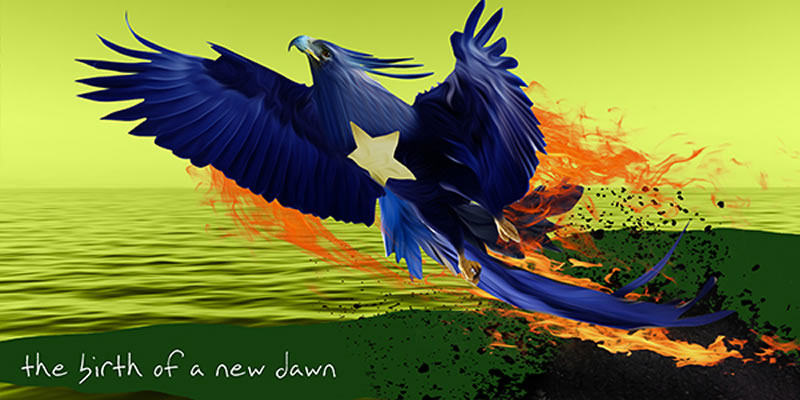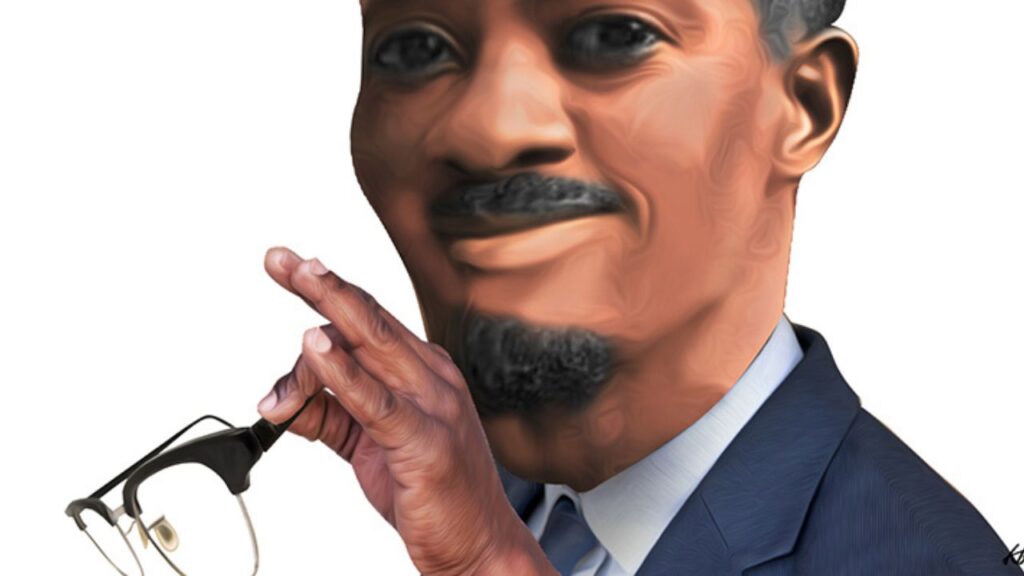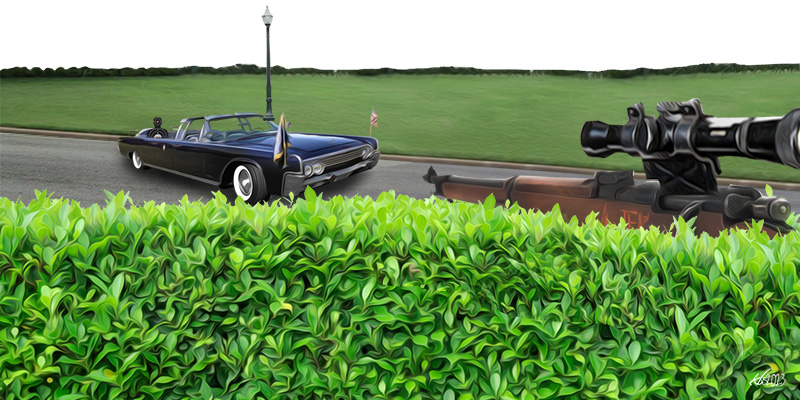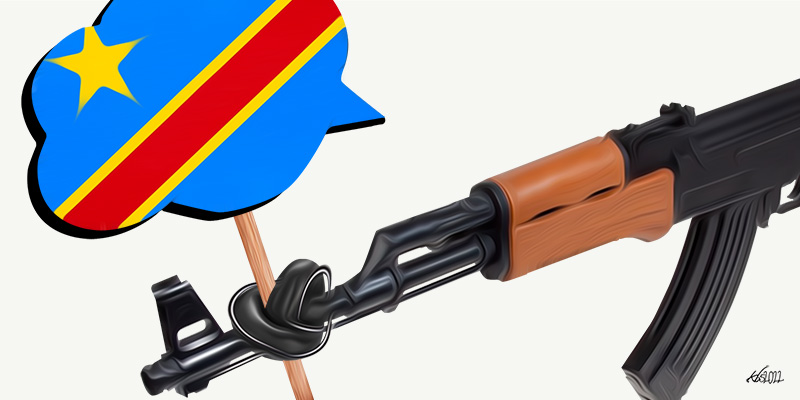The process that led to the election of Mohamed Abdullahi “Farmaajo” as president of Somalia on 8th of February 2017 fell short of former President Hassan Sheikh Mohamud’s goal of taking the country to a one-person-one-vote election. It was a goal that seemed achievable when President Mohamud assumed office in 2012, due to improved security that had seen the withdrawal of the Islamist group Al Shabaab from the capital Mogadishu a year earlier, which subsequently allowed an election to take place inside Somalia for the first time since 1969.
However, when it became apparent in 2015 that the one-person-one-vote system was not feasible due to several factors, chief among them, poor security, a new electoral model that was supposed to be an improvement on the 2012 model was agreed upon by all stakeholders. That, following a hasty and flawed process, is how Somalia elected its current president.
The 2016 Indirect Election
The electoral process that culminated in a presidential election in 2017 actually began in 2016, when parliamentary elections were held. A National Leadership Forum (NLF), consisting of all heads of regional states, as well as the President, the Prime Minister, and the Speaker of the Federal Parliament, agreed to a new electoral process called the Indirect Election.
Foreign actors, like the United Nations, have more power and influence over Somalia than anywhere else in the world. It is a paradox. On the one hand, this is a result of Somalia’s fragility and lack of strong leadership – its leaders have time and again shown a despot’s willingness to suppress dissent and allow foreign companies to sign deals without proper parliamentary scrutiny. On the other hand, foreign domination threatens the emergence of a credible and capable government, as a culture of dependency and reliance on foreign troops for security and foreign actors for governance becomes the norm.
The 2016 parliamentary elections came at time when all regional states had been established, thereby completing the federalisation process in the country and making it possible for the elections to take place in regional states rather than in Mogadishu, as was the case in 2012. This naturally helped more people to take part in the process.
Regional-level electoral committees where established, and supposedly given control of the electoral processes in their respective states. A National Traditional Forum (NTF) consisting of 135 members was appointed by the NLF. The NTF selected an electoral college of 14,025 members; 51 members of each electoral college voted for each of the 275 parliamentary seats in the House of the People.
For the first time in Somalia’s history, an Upper House consisting of 54 senators was established. Two or more candidates selected by regional executives competed for each seat and were voted for by the regional legislatures.
The Upper and the Lower House make up Somalia’s first bicameral parliament, and together elect the president.
How free and open was the Indirect Election?
Somalia is in a precarious situation. Foreign actors, like the United Nations, have more power and influence over Somalia than anywhere else in the world. It is a paradox. On the one hand, this is a result of Somalia’s fragility and lack of strong leadership – its leaders have time and again shown a despot’s willingness to suppress dissent and allow foreign companies to sign deals without proper parliamentary scrutiny. On the other hand, foreign domination threatens the emergence of a credible and capable government, as a culture of dependency and reliance on foreign troops for security and foreign actors for governance – what Abukar Arman, Somalia’s former Special Envoy to the United States, describes as “a nation under de facto and indefinite trusteeship” – becomes the norm.
Whereas only 135 clan elders handpicked the 250 members of parliament that elected the president in 2012, the 2016 election was a far more complex and supposedly more inclusive political process. However, although 14,025 delegates took part in this more inclusive process, these delegates were handpicked by the same traditional elders that had handpicked members of parliament in 2012.
And also notwithstanding the fact that Somalia is in a situation where a neighbouring country, Ethiopia, can openly campaign for its preferred candidate. (Ethiopia did not get its way this time, as, thanks to an uncharacteristic momentary lapse of irrationality, MPs voted differently.)
Nonetheless, this election lacked several benchmark characteristics that an election should generally have for it to be considered democratic.
The 2016 election proved to be a glorified version of the 2012 model; it did not deliver democracy as we know it; rather, it established a contrived democracy. Whereas only 135 clan elders handpicked the 250 members of parliament that elected the president in 2012, the 2016 election was a far more complex and supposedly more inclusive political process. However, although 14,025 delegates took part in this more inclusive process, these delegates were handpicked by the same traditional elders that had handpicked members of parliament in 2012. In addition, the 2016 election was marred by vote buying, candidate suppression and intimidation. Hence this election could not be described as democratic as it did not result in a form of government that emphasises people’s participation in politics in a free and open manner.
Some of the characteristics of a democracy, at least, those that can realistically apply to Somalia now, were also absent, including freedom of the press and freedom of assembly.
Freedom of the press
A free press is essential to a functioning democracy. Journalists must relentlessly pursue the truth by holding leaders to account. A free press allows for the general public to formulate their own reactions to news as it happens, not as the government says it happens. Somali National TV and Radio Mogadishu do the opposite. They at best whitewash the leaders’ incompetencies, and, at worst, flat out lie to the public.
The government also engages in arresting journalists from independent outlets that are deemed to be pursuing embarrassing stories, the arrest of an Al Jazeera English journalist being the latest example.
Freedom of assembly
When the 2016 parliamentary elections took place, Somalia did not have registered political parties. Although the Political Parties Act was passed in June 2016, it was not until May of 2017 that it was activated and political parties were asked to register. Prior to this, campaigning by politicians took place inside Mogadishu hotels. Campaigning in public places was, however, banned by the then Mogadishu mayor Yusuf Jimale, who stated that “the government [would] take legal action against those who make political rallies”. He claimed security to be the reason for the ban, prompting opposition leaders to say that the measure would restrict their freedom of assembly and expression. The absence of this fundamental freedom shows how undemocratic the process was and, ultimately, how illegitimate the results were.
Why is universal suffrage elusive in Somalia?
For a country that has been in conflict for a quarter of a century, it is no surprise that Somalia lacks the electoral infrastructure needed to conduct free, fair and universal suffrage elections. There are several factors that are seriously impeding the country moving in the right direction, including in-fighting and insecurity.
The changing of prime ministers and the constant reshuffling of cabinets, with new ministers taking new portfolios, and the subsequent lack of continuity in government policies, have stalled progress and crippled the effectiveness of successive administrations.
Political in-fighting
Political in-fighting in Somalia has become the norm since the inception of the first transitional government in 2000. It is now expected that each president will go through at least three Prime Ministers; former President Hassan Sheikh Mohamud’s administration was no exception. The first Prime Minister under President Mohamud was Abdi Farah Shirdon, who was widely expected to break this destructive habit due to his long-time friendship with the president. However, he had been in office for only 14 months when he was replaced. The Heritage Institute for Policy Studies, a think tank in Mogadishu, observed the impact of the internal squabbling at the time and its effect on Somalia’s brittle political landscape: “…The net result is a disoriented leadership and weakened government lacking domestic cohesion and international confidence.”
The changing of prime ministers and the constant reshuffling of cabinets, with new ministers taking new portfolios, and the subsequent lack of continuity in government policies, have stalled progress and crippled the effectiveness of successive administrations.
Fragile security
The tenuous security situation had not improved since Hassan Sheikh Mohamud came to power; on the contrary, the deadliest attacks since the beginning of the civil war took place during his tenure as president. The Institute for Peace and Economics, a global think tank based in Sydney, Australia, estimates in their 2016 report that 2014 and 2015 were Somalia’s most deadly and second deadliest years, respectively. In 2016, for the first time, a group loyal to ISIL entered and occupied the town of Qandala on the coast of Puntland, a semi-autonomous state in Somalia, and has since carried out its first suicide bombing inside Somalia, in May of 2017, much to the annoyance of the more established insurgency Al Shabaab.
Al Shabaab, whose attacks are known to be non-discriminatory, with targets ranging from coffee shops to public markets and hotels, and with an apparent ability to carry them out without facing any true pushback, issued a statement warning elders not to take part in the elections, saying it would deal with them “with an iron hand”. The threat made public participation in a one-person-one-vote election too dangerous to consider. The security situation was so bad and regressive that the 2017 presidential election was held in the heavily fortified Aden Adde International Airport.
The sustainability of Somalia’s emerging democracy depends on the presence of the much-needed 22,000 AMISOM troops. Resistance by militiamen with barely coded tribal agendas to a recent disarmament initiative in Mogadishu is another reminder of why AMISOM’S presence is vital.
Is Somalia’s “democracy” sustainable in its current form?
The sustainability of Somalia’s nascent return to normalcy and eventually a chance to be a viable state essentially depend on the readiness and strength of the Somali security apparatus. The Somali armed forces are underfunded and often go without pay for months. This has implications, not only for crucial capacity-building initiatives, but for the morale of the soldiers who are expected to take over the country’s security when the African Union Mission in Somalia (AMISOM) eventually withdraws.
The sustainability of Somalia’s emerging democracy depends on the presence of the much-needed 22,000 AMISOM troops. Resistance by militiamen with barely coded tribal agendas to a recent disarmament initiative in Mogadishu is another reminder of why AMISOM’S presence is vital. Already there have been issues with the funding of these troops, which might be rooted in donor fatigue due to the Somali National Army’s lack of tangible progress. The Burundian and Kenyan contingents in 2016 threatened to withdraw from Somalia over non-payment, while Uganda stated that a decision was taken to withdraw their troops from Somalia by December 2017 “because of frustration with the Somali army and military advisers from US, UK and Turkey”.
After a prolonged civil war, during which multiple warlords and an Islamist insurgency ruled different parts of the country, Somalia has finally conducted, however flawed, a rules-based electoral process that all stakeholders are satisfied with, and which was made possible through the involvement of a larger and more inclusive electorate than at any time since 1969.
However, Mohamed Abdullahi Farmaajo’s ascension to the presidency has ignited a renewed hope for the stabilisation of the country. Taking advantage of this momentum, the Federal Government of Somalia (FGS) and all the heads of the Federal Member States (FMS) agreed on a comprehensive and promising, albeit ambitious, National Security Architecture in April 2017, which was fully endorsed and backed by the high profile conference on Somalia that took place in London in May this year.
The national security architecture specifies how Somalia should be secured with the establishment of an 18,000-strong Somali National Army (SNA) consisting of a ground force, an air force and a marine force, in addition to a 32,000-member police force. The police and SNA will be trained inside Somalia and distributed all across the Federal Member States. This is expected to be completed in six months starting from the first of June this year.
What can we learn from Somalia’s election?
Somalia has come a long way since 1991, when the military dictator Said Barre was ousted from power, and the country descended into chaos. After a prolonged civil war, during which multiple warlords and an Islamist insurgency ruled different parts of the country, Somalia has finally conducted, however flawed, a rules-based electoral process that all stakeholders are satisfied with, and which was made possible through the involvement of a larger and more inclusive electorate than at any time since 1969. The peaceful transfer of power, a proud tradition that started in 1967 (not counting the 21 years of dictatorial hiatus) is something many more developed and more peaceful African countries struggle to achieve.








